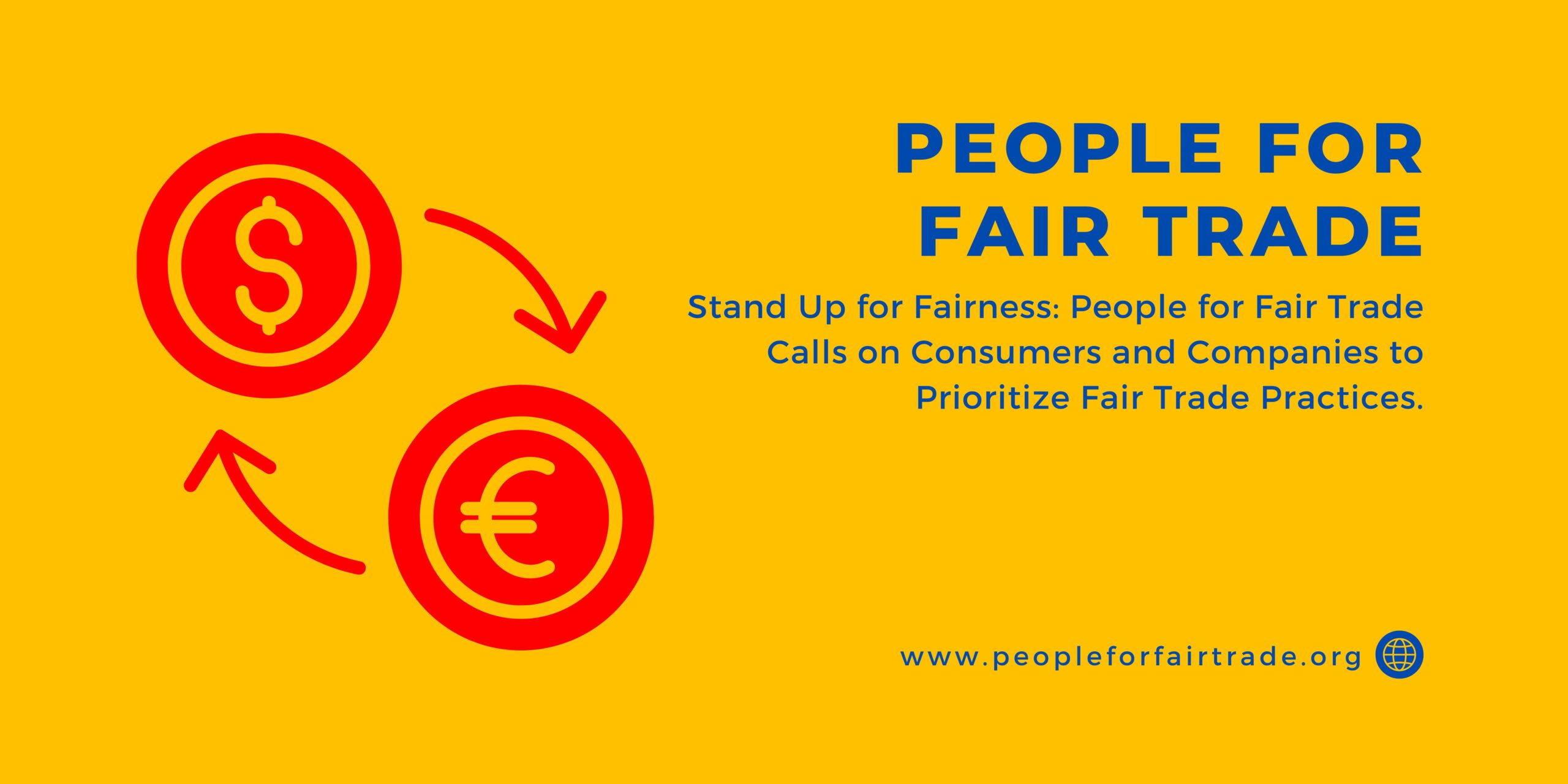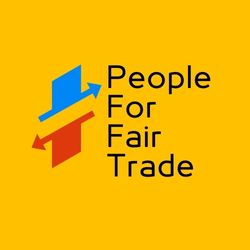In developing countries, where laborers and producers are often subjected to exploitation and poor working conditions, “fair trade” is a concept that seeks to promote ethical and sustainable trade practices. Workers’ rights, including the right to organize and bargain for better circumstances, are central to the principles of fair trade. Fair trade aims to improve conditions in the global economy for all parties involved, including employees, local communities, and the environment.
An international organization that supports free and open trade among all nations, People for Fair Trade works to change the way international trade is conducted. The group fights for workers’ rights to organize and bargain collectively for better pay and working circumstances, as well as for environmental protections in international trade. Recognizing the significance of environmental protection and resource conservation for future generations, People for Fair Trade also advocates for healthy agricultural and industrial practices.
People for Fair Trade works toward a world economy that is fair to all participants and can be maintained for the long haul. Organization that advocates for fair trade practices and policies that put an emphasis on social and environmental equity in order to improve the lives of workers and communities in the global South. In addition to advocating for fair trade and sustainable business practices, People for Fair Trade seeks to inform consumers about the significance of their purchasing choices.
People for Fair Trade and the idea of fair trade aim to improve conditions in the global economy so that workers, communities, and the environment all fare better.

The Need for Social and Environmental Justice in Trade
The ecosystem may suffer serious consequences if businesses continue to engage in unsustainable trade practices. The depletion of natural resources is a major environmental effect of unsustainable trade practices. Businesses that put profit before the environment are more likely to participate in destructive activities like cutting down forests, overfishing, and using up all the available water. The long-term health and prosperity of communities that depend on these resources may be jeopardized as a result of these practices.
Pollution is another major effect of unsustainable trade practices on the ecosystem. Companies that put profit before environmental sustainability frequently use methods that harm the ecosystem by releasing harmful chemicals into the atmosphere, water, and ground. In addition to having negative impacts on human health, pollution can also damage local ecosystems, resulting in losses of biodiversity and critical wildlife habitat.
An additional significant environmental effect of unsustainable trade practices is climate change. The emission of greenhouse gases that trap heat in the atmosphere and add to global warming is exacerbated by the use of fossil fuels in transportation and industry, as well as by deforestation and other changes in land use. Rising sea levels, more frequent and severe extreme weather events, and changes to ecosystems that can have negative effects on both wildlife and human populations are just some of the many negative outcomes of climate change.
Depletion of natural resources, pollution, and climate change are just some of the negative effects that can result from trade methods that are not environmentally sustainable. If we care about the future of our world and its people, we need to make sustainable trade practices a top priority.
People for Fair Trade’s Advocacy Work
Several of People for Fair Trade’s programs work to ensure that trade policies and procedures are equitable from a social and environmental standpoint.
A few examples of such efforts are:
1. People for Fair Trade promotes fair trade policies on a regional, national, and worldwide scale through advocacy. The group actively engages policymakers in an effort to advance legislation that strengthens employees’ access to collective bargaining, workplace safety, and other fundamental protections. Policies that promote sustainability in agribusiness and manufacturing are strongly supported by People for Fair Trade. These include policies that promote the use of renewable energy sources and sustainable land use practices.
2. People for Fair Trade backs worker-led movements to better working conditions and increase worker power in countries all over the globe. The group aids these initiatives by providing training, advocacy assistance, and links to related groups. In addition to promoting these organizations, People for Fair Trade seeks to educate the public on their struggles and victories so that they may use their purchasing power to show their support.
3. To reduce negative effects on workers, communities, and the ecosystem from consumer spending, People for Fair Trade promotes consumer education. Details about fair trade certifications as well as sustainability standards are just two examples of the types of tools and data that the group makes available to consumers. Consumers are urged by People for Fair Trade to lobby for fair trade practices and policies by writing lawmakers and financially backing worker-led movements.
4. People for Fair Trade contributes to sustainable development in agriculture and industry by arguing for policies that give preference to sustainable methods of land use, the use of renewable energy sources, and the preservation of biodiversity. The group also educates customers on sustainable credentials and standards in an effort to sway their purchasing decisions in favor of environmentally friendly companies and goods.
By advocating for living wages, secure working conditions, and environmentally sound agricultural and industrial practices, People for Fair Trade seeks to advance social and environmental justice in the global trade system as a whole. As part of its mission, the group also seeks to inform shoppers about how their purchases affect local economies and neighborhoods.

The Importance of Sustainability in Trade
There are many reasons why businesses should prioritize environmental safety and resource conservation.
Firstly, many industries depend on natural resources, such as timber, minerals, and water, which are all provided by the environment. When these resources are overused or depleted, it can have a devastating effect on the ecosystem and the people who depend on them for a living.
Second, biodiversity and habitats may suffer as a result of unsustainable trade practices. Decreases in biodiversity and the loss of crucial habitat for wildlife can be the result of practices employed by many businesses. All environments may be harmed as a result of the domino effect this can cause.
Thirdly, climate change is one of the most pressing environmental issues, and unsustainable trade policies can exacerbate it. The emission of greenhouse gas emissions that retain heat in the atmosphere and add to global warming is exacerbated by the use of fossil fuels in transit and industry, as well as by deforestation and other changes in land use. Rising sea levels, more frequent and severe extreme weather events, and changes to ecosystems that can have negative effects on both wildlife and human populations are just some of the many negative outcomes of climate change.
Therefore, it is essential for the health and well-being of the world and its inhabitants that trade practices safeguard the environment and preserve natural resources. To this end, it is important to safeguard vital natural resources like forests and water supplies, as well as to encourage the use of green energy sources in the agricultural and industrial sectors. Doing so will help usher in a more fair and environmentally friendly global economic system.
